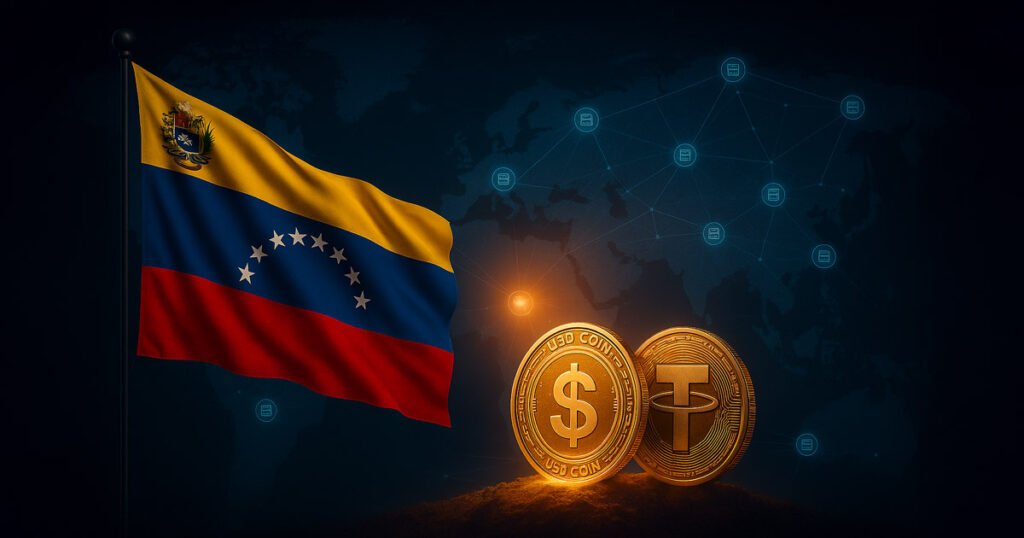Venezuela’s Crackdown on the “Monitor Dólar” Instagram Page: Implications and Insights
In recent developments, Venezuela’s government has detained at least 20 moderators of the influential Instagram page “Monitor Dólar.” Accusations include terrorism, money laundering, and fraud for reporting the widely followed parallel exchange rate. Interior Minister Diosdado Cabello reported these arrests, which signal a significant escalation in the government’s long-standing efforts to control economic information. This crackdown revives measures reminiscent of the hyperinflation crisis experienced between 2013 and 2018 and embodies a strategic push by authorities to guide citizens and businesses toward the central bank’s official bolívar-to-dollar exchange rate.
The operation, which began with nighttime raids on May 29, showcases a dramatic turn in Venezuela’s handling of currency issues. During these raids, security forces confiscated phones and laptops from the detainees, who collectively managed an impressive following of 1.3 million users. Cabello stated that the investigation had been discreet thus far and promised that further arrests may follow. Concurrently, officials from the national tax agency initiated surprise inspections in businesses, including supermarkets and pharmacies, to ensure compliance with pricing at the officially sanctioned exchange rate, which is currently 38% lower than the freely quoted dollar rate.
Worsening economic conditions, compounded by harsh U.S. sanctions on Venezuelan oil, have led to increased pressure on the central bank’s ability to maintain the bolívar’s value. Analysts note that the unofficial exchange rate has skyrocketed by 160% over the past year, while the official rate only increased by 91%. As a result, many merchants have begun to set prices in dollars posted in WhatsApp groups, converting them to bolívars only at the point of sale. The stark difference in these rates has become impossible to overlook, raising serious concerns for both consumers and businesses.
This crackdown is likely to push many Venezuelans toward alternative currencies, such as stablecoins, to preserve wealth amid ongoing economic instability. According to Chainalysis, Venezuelans channeled approximately $20 billion through cryptocurrency platforms in 2024, representing a staggering 110% year-on-year growth. Stablecoins present a more stable alternative for transactions, allowing users to evade increasingly stringent controls imposed by the government. Economic experts have pointed out that platforms like Binance and Telegram have become vital for peer-to-peer trading, facilitating rapid rate updates that are difficult for authorities to monitor or regulate.
Historically, Venezuela’s government has resisted the dissemination of public exchange-rate information. In 2015, a lawsuit was filed against the U.S.-based site DolarToday, and periodic blocks on the site prompted Venezuelans to shift their reliance to social media and chats. With the advent of digital currencies, the government may find its ability to control currency exchange rapidly eroding. Analysts predict a swift adaptation process similar to past events, driven by the efficiency and immediacy of digital transactions.
Amid these escalating tensions, issues surrounding free speech are also raising alarm. Rights groups assert that labeling civilians as terrorists for merely publishing exchange rates infringes upon the due-process guarantees entrenched in Venezuela’s 1999 constitution. The government, on the other hand, claims that unregulated quotes provoke financial panic and speculation among the public. As the national regulatory body for cryptocurrencies, the National Superintendency of Crypto Assets (SUNACRIP), faces scrutiny following a corruption scandal, its next course of action remains uncertain. Legal experts speculate that stricter regulations could potentially clamp down further on local exchanges.
Shopkeepers are now confronted with a critical dilemma: adhere to the government’s state exchange rate and incur losses or face potential penalties for utilizing the higher market rate. Some businesses have begun to accept stablecoins directly, bypassing bolívars entirely. The ability of the central bank to close the widening gap will largely depend on its capacity to inject dollars into the economy. However, with diminishing oil revenues and intensified sanctions, this task is increasingly challenging. Should this gap persist, it could result in a permanent shift towards digital currencies, solidifying an underground financial system that the government struggles to tax or regulate effectively. In this context, the latest arrests may ultimately be viewed as a minor episode in a larger narrative: Venezuela’s transition toward a resilient economy operating through stablecoin channels outside governmental reach.


